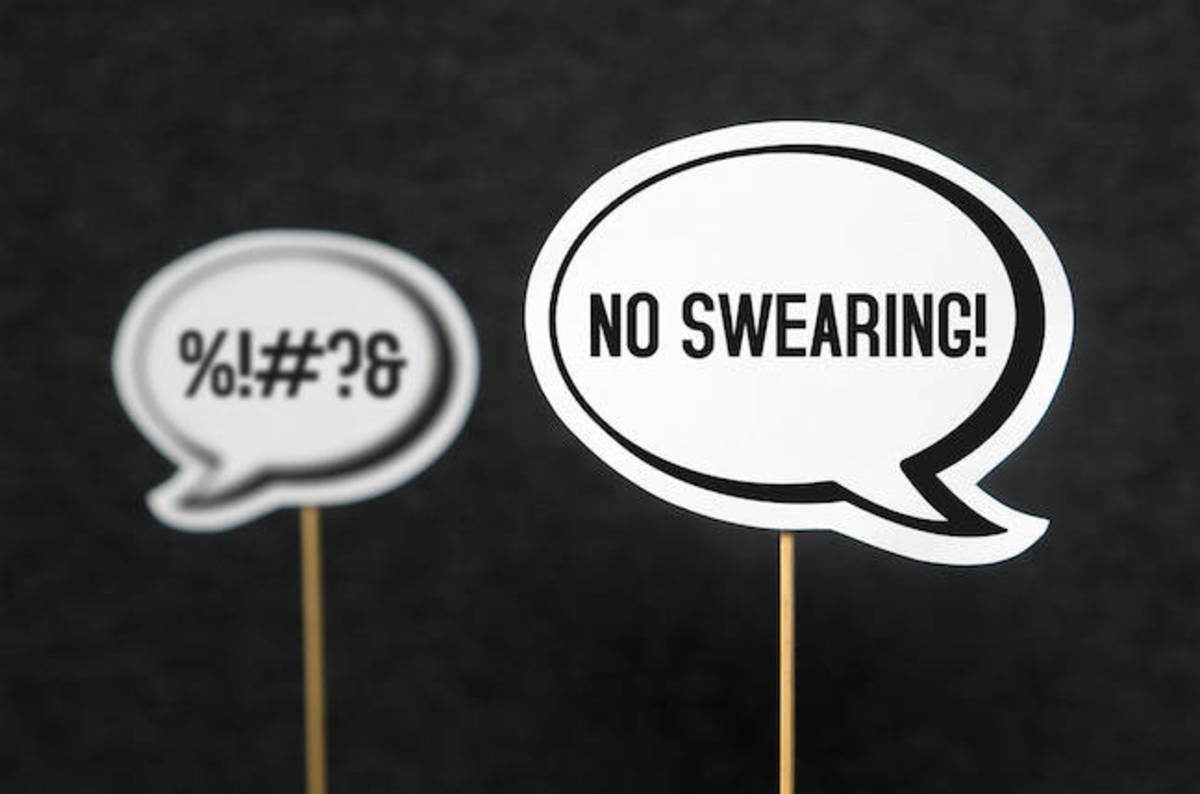As the world’s oldest known joke shows, humour has both its constants and has also lost something in the translation over the millennia. The constant is that humans have apparently been telling fart jokes forever. The loss-in-translation is that the 4,000 year-old Sumerian knee-slapper just seems a bit… weird.
Something which has never occurred since time immemorial… A young woman did not fart in her husband’s lap.
I guess it must really have killed ’em, back in the Ur stand-up circuit. After all, someone saw fit to jot it down on a clay tablet, in 1900 BC.
But even more persistent than fart jokes is profanity. And, like toilet humour, swear words have a certain consistency over the ages.
All swear words concern what is sacred or what is scatological. In the Middle Ages, the worst words had been about what was holy; by the 18th century they were about bodily functions. The 16th century was a period when what was considered obscene was in flux.
As an author, trying to imagine a world where religion as we know it didn’t exist, an immediate problem I came across was coming up with convincing expletives. Now, I’m not particularly fond of heavy use of expletives, but occasionally characters need to vent. But, as I found, what are now mild expletives almost all rely on religious concepts. Damn it! God! Hell!
But back in Shakespeare’s day, such curses were anything but mild.
The most offensive words still used God’s name: God’s blood, God’s wounds, God’s bones, death, flesh, foot, heart, arms, nails, body, sides, guts, tongue, eyes. A statute of 1606 forbade the use of words that ‘iestingly or prophanely’ spoke the name of God in plays. Damn and hell were early modern variations of such blasphemous oaths (bloody came later), as were the euphemistic asseverations, gad, gog and egad.
On the other hand…
Many words we consider, at best, crude were medieval common-or-garden words of description – arse, shit, fart, bollocks, prick, piss, turd – and were not considered obscene. To say ‘I’m going to piss’ was the equivalent of saying ‘I’m going to wee’ today and was politer than the new 16th-century vulgarity, ‘I’m going to take a leak.’ Putting body parts or products where they shouldn’t normally be created delightfully defiant phrases such as ‘turd in your teeth’, which appears in the 1509 compendium of the Oxford don John Stanbridge. Non-literal uses of these words – which is what tends to be required for swearing – like ‘take the piss’, ‘on the piss’, ‘piss off’ – all seem to be 20th-century flourishes. For the latter, the Tudors would have substituted something diabolical – ‘the devil rot thee’ – or epidemiological – ‘a pox on you’.
But the times, they were a-changin’…
But the scatological was starting to become obscene. Sard, swive and fuck were all slightly rude words for sexual intercourse. An early recorded use of the f-word was a piece of marginalia by an anonymous monk writing in 1528 in a manuscript copy of Cicero’s De officiis (a treatise on moral philosophy). The inscription reads: ‘O d fuckin Abbot.’ Given that the use of the f-word as an intensifier didn’t catch on for another three centuries, this is likely a punchy comment on the abbot’s immoral behaviour.
Frig and jape were also on the cusp of offensiveness. Randle Cotgrave’s 1611 French-English dictionary translates the French fringue as ‘to lecher or lasciviously frig with the tail’ (tail was a euphemism for penis). Cunt was also starting to move from being the most direct word to describe a part of the anatomy into obscenity. Shakespeare makes jokes in Hamlet about ‘country matters’ in which he clearly means (as the next line says) what ‘lie[s] between maids’ legs’. Bugger remained a non-explicit word for anal sex.
The now-ubiquitous fuck and all its permutations would have puzzled the Elizabethans.
Today many of these words have an admirable grammatical flexibility for which the Tudors had no clear substitute. For a phrase to express unfortunate circumstances that seem impossible to overcome (‘we’re fucked’), the Historical Thesaurus of English tells us that they would have proclaimed themselves to be ‘in hot water’ (first use 1537), ‘in a pickle’ (1562), ‘in straits’ (1565) or, in the most extreme predicament, at one’s ‘utter shift’ (c 1604). To ‘fuck up’ or spoil something, they’d have used ‘to bodge’ or ‘to botch’.
But, holy words aside, if you really wanted to offend someone in the 16th century, you’d call them a whore, knave, thief, harlot, cuckold or false. They still cared more about a reputation for behaving badly than how to describe the behaviour itself.
History Today
Another remarkable change over the centuries: today, far fewer people care about a reputation for behaving badly than they do about a reputation for thinking badly. The worst thing you can call anyone today is any of the endless variations of “-ist” or “-phobe”.

